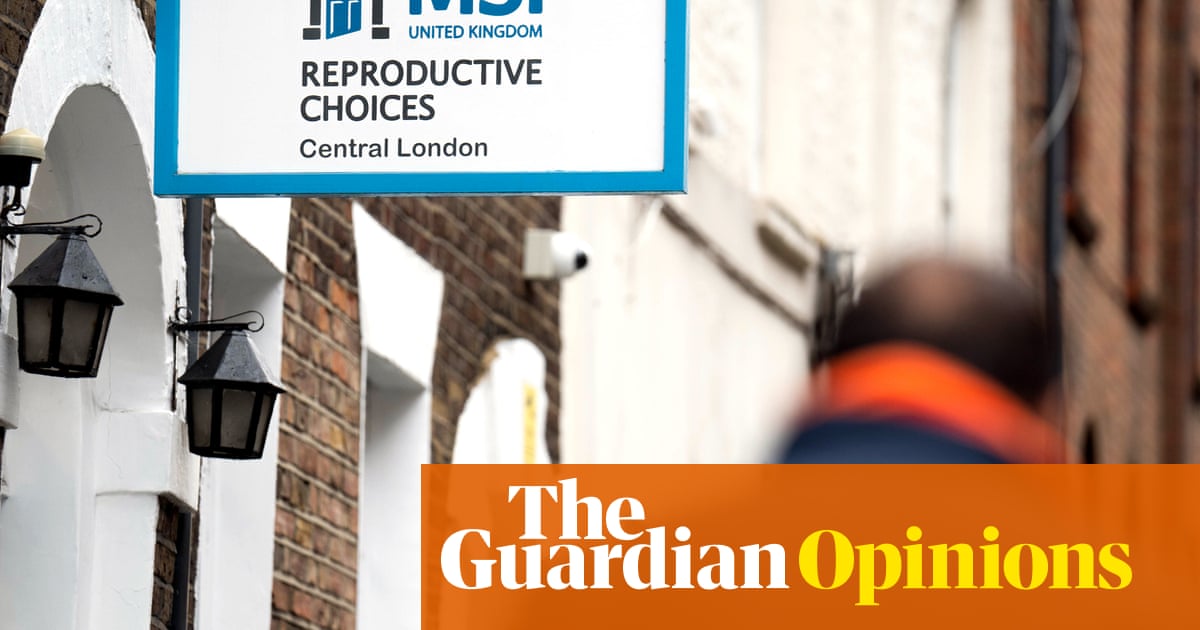Opening the Pandora’s box of abortion reform is something no one should do without the confidence that they are able to manage the resulting chaos. Moves to decriminalise abortion, in response to thecontinued prosecution of women for having one, could unintentionally enable the restriction of access under a future regressive government. To prevent this and protect services, it is time to write into our statute that safe and legal access to abortion is a human right across our nation.
It still shocks many people to realise that in 2025 abortion is not actually legal for most of the UK. Only in Northern Ireland do women have a right to an abortion. Everywhere else they are exempted from prosecution if it is determined they have met certain access conditions. This is not a quaint jurisprudence debate – it is driving the explosion in recent years of investigations and prosecutions of women and girls for having abortions in England. A vulnerable 15-year-old girl who didn’t know she was pregnant and had alate-term miscarriagefound a police constable at her hospital bed. Others have spent years under suspicion and investigation, andin some cases in jail.
These cases, and the chilling effect they have on services, come at a time when the anti-abortion movement is turning its attention to our shores. Millions of pounds isflowing into campaigning and networking, pushing not for an explicit end to services but “safeguards” – all ruses to make getting a termination harder. Incendiary language abounds, as decriminalisation is claimed to mean “abortion at birth”. The US vice-president, JD Vance, hasopenly criticisedour buffer zones that protect women going to clinics from harassment as “anti free speech”. Ever the opportunist, Nigel Farage has argued parliament should debate a reduction in the time limit under which women can secure a termination. At the heart of this is a simple premise – women cannot be trusted to make decisions about their own bodies and should be policed accordingly.
I recognise the appeal of simple solutions to stop the prosecutions – including using the upcoming policing bill to insert a clause removing women from the application of the 18-century act that puts having an abortion on a par with assaulting a clergyman, bigamy and manslaughter. But in our toxic political environment this is to play Russian roulette with abortion access. It is a standard feature of any legislation that it gives the right to make secondary regulations to government about the topics in the bill – the Henry VIII powers that are the mainstay of executive overreach. Inserting the issue of abortion into any act of parliament without directing what happens next is like handing a future government a loaded gun to point at women’s rights – if passed, this would give powers to restrict or even end access to abortion with minimal democratic opportunity to intervene.
This risk doesn’t mean we shouldn’t act. The battle to provide abortion at all in Northern Ireland began in earnest once we passed a law requiring the secretary of state to deliver treatment as a human right. Resistance came not just from the Democratic Unionist party, but also from those charged with delivery, including the civil service and healthcare departments. The secretary of state had to intervene or face direct censure. That meant when those in positions of power used their role to prevent services from being set up, ministers knocked heads together and got things moving again. We can learn from this now in protecting existing services such as buffer zones and shape future provision too. It is time that women in Birmingham, Bristol and Barry had the same constitutionally protected right as women in Belfast to a safe medical treatment if they choose not to continue a pregnancy.
This week we will lay an alternative amendment to the policing bill that doesn’t just repeal the antiquated criminal law and free women from the threat of prosecution. It also puts in place a plan for what happens next – an explicit human rights framework to ensure safe access and prevent the rolling back of abortion rights, whoever is in power.
It would not alter the settled time limit for a termination, nor would it prevent prosecution of anyone who forces a woman to have an abortion. It would mean, for the first time in history, women here could point to their right to choose – and demand it is protected, as it is in France, Mexico, Colombia and Ireland. Any subsequent regulation affecting how abortions are provided, or equally importantly the work of those who offer them, would also have to uphold this human right too.
Crucially in our febrile political climate, this amendment comes with a democratic lock to prevent the use of secondary legislative powers to change these rights. If a future government wanted to destroy abortion provision it would have to get the consent of the whole parliament – giving all citizens the ability to lobby their MP accordingly. Pandora’s box contained both chaos and hope – getting these proposals right could not only prevent further attacks on women’s rights, but also finally put abortion access here on the health and human rights footing it deserves.
Stella Creasy is the Labour and Cooperative MP for Walthamstow
